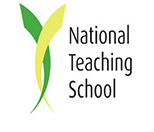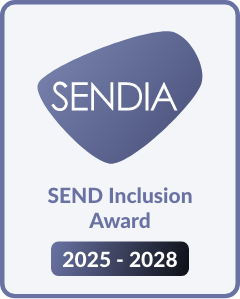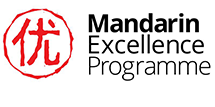ASSESSMENT AT FORTISMERE
The Purpose of Assessment at Fortismere
At Fortismere, assessments are designed to support your child’s learning and progress. They help teachers understand how well students are learning the curriculum, identify areas where extra help may be needed, and guide future teaching. Assessments also give students regular feedback to help them improve and prepare effectively for their final exams. Ultimately, our goal is to provide clear, meaningful information that helps students succeed and keeps parents and carers informed about their child’s progress.
We have recently made some small changes to our assessment practices and you can read about these below, along with detailed information about how we set targets for students at key stage 4 and key stage 5.
Why are we making these changes?
Our current system works well in many ways – it’s familiar to everyone and provides regular feedback. However, after careful review and discussions with school leaders, we believe adjustments will help:
- Make assessments better match the curriculum your child is studying.
- Reflect differences between subjects more accurately.
- Provide clearer, more useful information to you, especially for students in Key Stage 3 (Years 7 to 9).
- Adapt to new changes in the school calendar, such as the introduction of a two-week half-term in Autumn.
What’s changing?
1. Ongoing assessments instead of fixed tests: Rather than having all assessments during set “windows,” teachers will now use a mix of ongoing quizzes, projects, tests, and assignments that better cover the material your child has been learning.
2. More flexibility for teachers: Heads of Departments will have more freedom to decide when and how assessments happen in their subjects, so assessments fit better with the curriculum
3. Clearer reporting through detailed comments: When you receive reports about your child’s progress, you will get clear, personalised comments on three key areas:
- Attainment (how well your child understands the subject)
- Commitment to Learning (effort and homework)
- Behaviour for Learning (engagement and positive behaviour)
4. Big picture tests at Key Stage 3: Students will take assessments in the middle of Year 8 and the end of Year 9 that check their understanding of everything taught so far. The results will be shared as percentages along with a year group average and comments about your child.
5. More focus on revision before exams: Before mock exams and final exams, students will have dedicated time for revision in lessons and homework. Revision materials will be made available online for you and your child to access easily.
6. Baseline assessments in Years 7 and 12: At the start of these years, students take a short assessment to help teachers understand their starting points and plan support if needed.
7. Changes to mock exam timing at Key Stages 4 and 5: The introduction of the two-week Autumn half-term means mocks in Years 11 and 13 will happen a little earlier, spreading assessments more evenly across the two-year courses. Year 10 and 12 mocks will also move earlier. This will give us more time to support students to achieve their best.
8. Early identification and support: The new system will help teachers spot if a student is struggling earlier, so interventions can be put in place quickly.
We believe these changes will make assessments more useful for students, parents, and teachers alike, and better support your child’s learning journey.
REPORTS - How will we keep you informed?
In Years 7, 8 and 9 you will receive a report twice a year that includes information about what has been taught and assessed and comments on:
- Attainment (how well the student understands the curriculum)
- Commitment to Learning (effort in class and homework)
- Behaviour for Learning (engagement and positive behaviour)
If we identify that your child needs additional help, we will contact you to discuss next steps, whether by email, phone, or at Parents’ Evening.
In addition, in the middle of Year 8 and the end of Year 9 we will report percentage scores along with the year group average for comparison.
Key Stage 4 & 5 (Years 10-11 and Years 12-13):
In Years 10 to 13 students have ongoing assessments and mock exams to prepare for final exams. We will report:
- Attainment (a working grade for GCSE, A level or BTEC)
- Commitment to Learning (effort in class and homework)
- Behaviour for Learning (engagement and positive behaviour)
Using the CosX platform you will be able to track and monitor changes over time in your child's grades.
Where can I view reports?
Student reports will be published on the CosX platform along with detailed curriculum maps. Details of how to access the CosX platform can be found in this guide here.
SETTING STUDENT TARGET GRADES
How do we set target Grades at Key Stage 4?
We use FFT 5 (Fischer Family Trust) to set aspirational academic targets for your child based on statistical analysis of how similar pupils have performed nationally. The "5" refers to the target grade being set at a level that approximately 5% of pupils with similar starting points have historically exceeded - making them deliberately challenging but achievable targets.
FFT 5 targets are calculated using:
Prior attainment data
- Your child's results from previous assessments (such as KS2 SATs scores)
- These baseline scores are compared against a national database of pupil performance
National benchmarking
- FFT analyses data from thousands of pupils across England
- The system identifies pupils who had similar starting points to your child
- It then looks at what grades the top-performing pupils in this group achieved
Statistical modelling
- The target represents a grade that only the top 5% of similar pupils nationally have surpassed
- This makes FFT 5 targets ambitious - they're designed to stretch your child rather than predict what they're most likely to achieve
Why do targets differ between subjects?
You may notice your child has different FFT 5 targets across their subjects. This is completely normal and happens because:
Different starting points
- Your child may have shown stronger prior attainment in some subjects than others at KS2
- For example, they might have achieved a higher score in reading than in maths, leading to different baseline data for English and maths targets
Subject-specific performance patterns
- National data shows that pupils don't progress at the same rate across all subjects
- Some subjects historically show different progression patterns - for instance, a pupil strong in English might not automatically be equally strong in science
Individual strengths and interests
- The targets reflect that pupils naturally have different aptitudes and interests
- Your child might excel in creative subjects while finding STEM subjects more challenging, or vice versa
Curriculum differences
- Each subject has different assessment criteria and content demands
- The complexity and nature of what's being assessed varies significantly between subjects
How do we set targets at Key Stage 5?
We use ALPS (A Level Performance System) to set targets at Key Stage 5. ALPS is a nationally recognised system that helps us set aspirational yet realistic targets for your child based on their prior attainment. It uses data from thousands of students across the country to predict what grades students with similar starting points typically achieve.
How are minimum expected grades calculated?
ALPS uses your child's GCSE results as the baseline. The system analyses:
- Their average GCSE grade across all subjects
- Their performance in specific subjects relevant to their current studies
- National data showing what students with similar GCSE results typically achieve at A Level
Why do targets vary between subjects?
Targets vary between subjects because:
Subject-specific difficulty - Some subjects historically show different patterns of achievement. For example:
- Students may perform differently in essay-based subjects versus practical subjects
- Some subjects have steeper learning curves than others
Your child's individual strengths
- If your child achieved a grade 8 in GCSE Maths but a grade 6 in English, their A Level targets will reflect these different starting points
- The system recognises that students have different aptitudes
National benchmarking
ALPS compares your child to students nationally who had similar GCSE grades in that specific subject, not just their overall GCSE performance




